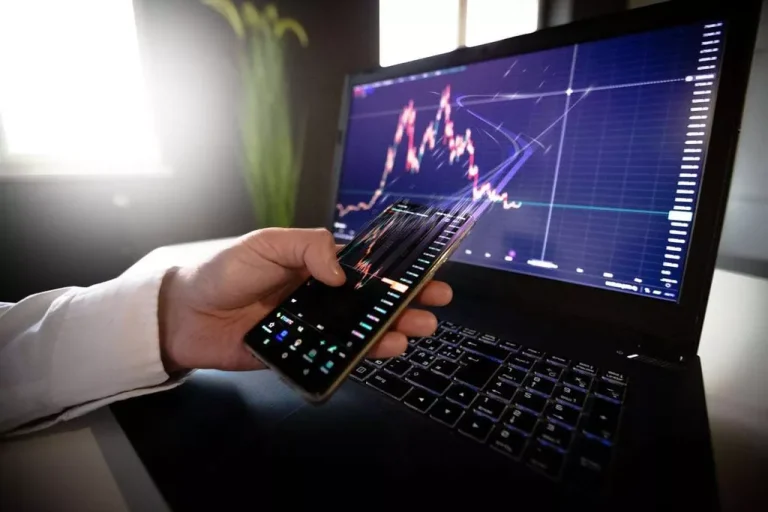A-book brokers earn independently of market movements, profiting from commissions and spreads, also shared between the liquidity provider and the trading platform. Another way to identify a b book broker is by looking at the types of trading accounts they offer. B book brokers typically offer fixed spread accounts, where the spread remains the same regardless of market conditions. This is because the broker is not passing the trader’s orders onto a liquidity provider, so there is no need to adjust the spread to reflect changes in the wider market.

You can deploy strategies that won’t work on A book brokers such as news trading. Losing traders, a category that comprises the vast majority, are directed towards liquidity pools that are controlled indirectly or directly by the broker or exchange itself. The broker is just an intermediary in providing financial services.
A-Book vs. B-Book Brokers: Who Are They And How Make Money?
In the not too distant future, anything other than algorithmic trading will increasingly resemble the betting industry rather than financial markets. In fact, at the retail level, that era is probably already here. Likewise, many industry outsiders may have the belief that HFT (High-Frequency Trading) is some kind of evolution from LFT (Low-Frequency Trading). HFT is widely used in quant LPs and market makers while LFT is more used by the institutional buy-side. If there are trends, momentum low-frequency models can outperform the market.
Thus, apply a model that suits your requirements and prepare for a long yet exciting trading journey. Some people will say that this execution model generates conflicts between the client and the broker. However, there are some advantages to trading via B-Book brokers. This includes very competitive spreads (sometimes as low as zero), fast execution, and the ability to get an execution on all instruments (including exotic currency pairs). We come to the conclusion that none of the plans can be considered a cure for loss. After considering your company objectives and strategies, you must pick which business model is best for you to implement.
How to avoid margin calls in forex?
So while I think it’s a bit of an over-reaction to the problem, it does make it harder for B-book brokers to let their clients blow up. This type of book is used by forex brokers to take the other side of their clients’ trades. This means that when a client places a trade, the broker will take the opposite position. The broker will then hedge this position in the market to ensure that they are not exposed to too much risk. It is also important to look at the broker’s trading conditions. B book brokers are known for offering high leverage and low margin requirements, as they are able to offset the risk of traders’ positions by taking the opposite side of the trade.
- On the one hand, such a model encourages competition between liquidity providers, thus narrowing the spread and reducing the commission fees.
- Declaring this information is confidential is like a dermatologist telling a patient that the components of a recommended drug are confidential and must be kept in private.
- They balance their books by hoping that losing trades will cover the winning trades they must pay out.
- The finance department was ready to approve it, but the withdrawal control system was set in a way that all large requests over $10,000 must also be approved by the client’s personal manager.
- If a broker utilizes the B-Book model, it doesn’t necessarily mean that it is a kitchen (although such a probability is high).
DD brokers, market makers, Dealing Desk brokers – all these mean the same counterparty, which takes the other side of the client’s trade, executing almost all the trades with its internal system. Dealing Desk brokers create a market for the client, serving as market makers. A Dealing Desk can change the leverage, spread, affect the accuracy of the quotes, artificially increase slippage, manipulate client’s orders.
Advantages of B-Book Brokers
If you think of a B-Book broker like a casino, it doesn’t want a customer that trades so big that any individual bet exposes the broker to so much market risk that it could cause it to “go bust” or “take the house down”. This allows the broker to pocket the spread on both sides without taking on any market risk because positions are netted out. The problem is that since the broker takes the opposite side of their customers’ trades, they are exposed to the risk of being on the losing side of the trade. What B-Book brokers really WANT is to pocket the spread AND not have to hedge (because hedging costs money). And if all you do is keep losing, then the broker is slowly capturing more and more of the money that you initially deposited in your trading account.
And don’t worry – if you have no idea what an A-book broker is, you’re not the only one. They also don’t like traders who are too good because the trader is taking away money from their other customers. What B-Book brokers love the most is when their customers are constantly trading and are not winning too much, nor losing too much.
If a B-book broker offers high leverage, it’s usually because they want you to blow your account – because they want your money. You https://www.xcritical.in/ can see here how the misalignment of incentives can be a problem. But they still profit from the destruction of their own clients.

DMA is similar to STP, where traders’ orders are distributed among liquidity providers. Conversely, in the STP model, the trader has to match the offer of a particular liquidity provider (only the one with which the broker has an agreement). Each broker can work with an unlimited number of aggregators and liquidity providers. The terms of the partnership will depend on the order execution speed, spread, and commission.
The Benefits and Risks of Automated Forex Platform Trading
Another liquidity provider offers a 5-pip spread and charges a commission of $10. The broker system sorts traders’ offers automatically what is a book vs b book at the best prices for financial instruments. So, the broker first pays the commission, and there arises a problem.
B book brokers, on the other hand, are more likely to manipulate the market as they have a vested interest in their clients’ trades. They may widen the spread or delay the execution of trades to ensure that they make more money. This can be detrimental to traders as they may end up paying more for their trades or missing out on profitable trades.
The trader sees prices and volumes of orders, which suggest a kind of market sentiment. The Depth of Market of level 1 displays the data on the best prices. The Depth of Market of level 2 provides complete information on all orders placed. If a large client places a large order within the system, the broker will have to either act as a counterparty or allow slippage. Both variants are the features of a kitchen, which do not promise anything good to a trader. That is, the A-Book broker can’t compete with the B-Book one in terms of costs.
Even if this practice could be considered illegal, you will be surprised of how many OTC brokers implement it. At the end of the day, what matters is whether your strategy is algorithmic and winning over the long term so that you are in the A-book. If you trade with a professional and profitable strategy, you will be connected to the highest quality liquidity and not be a simple suction tool for the quant market makers. As for prohibiting inducements – this just means that brokers can no longer incentivize traders to trade more actively through offering prizes and gifts. Any broker that encourages you to take undue risk by trading larger or more frequently than you normally would is almost certainly a B-book broker who is profiting from your losses. If you are trading through a B-book trader and your account goes into the negative, it really means nothing.
But, certainly, the company is interested, first of all, in profitable traders because, in this case, a mutually advantageous collaboration between the company and the client will be long-term. Therefore, dishonest brokers may be interested in setting non-market quotes in the terminal, spying on the set client stops and knocking them down with plugins in the server side of the platform to make the trader lose money. Unfortunately, there are many such “bucket shop” brokerage companies, but we won’t dwell on this — we analyze forex brokers, not scammers. Yes, there are brokers/exchanges with what I like to call a C-book. Everything is a demo account and due to the fact they expect most traders to lose all their money, what they do is to collect deposits, wait around90 days until most traders burn their accounts, and they just retain client’s deposits as gross revenue.
Assume the spread from the liquidity provider is 3 pips, your A Book broker may list it on their platform as 4 pips, guaranteeing them a 1 pip profit. This is because it ensures that trades are executed at the best possible price. A book brokers are also less likely to manipulate the market as they do not have a vested interest in their clients’ trades. A-book execution connects you to very large liquidity providers, mainly banks. They charge the broker/exchange fees for providing their liquidity -mainly spreads or taker/maker fees plus swaps-, and the broker/exchange adds a mark-up to those costs, the difference being the source of their gross revenue.
